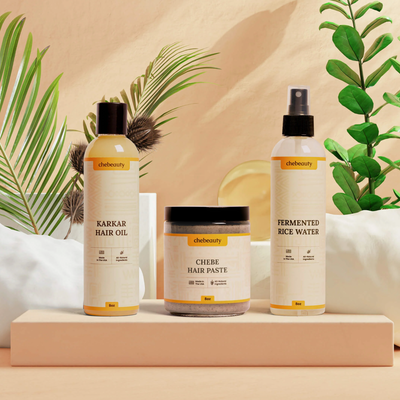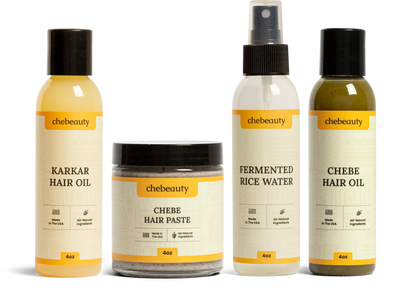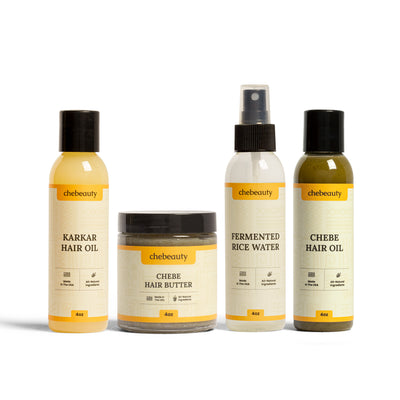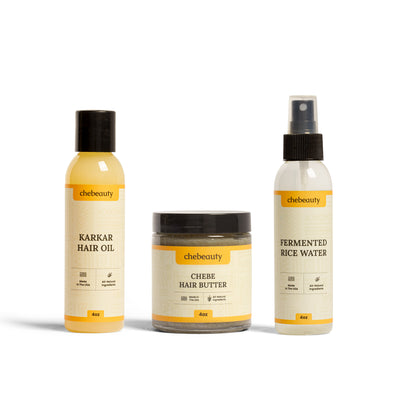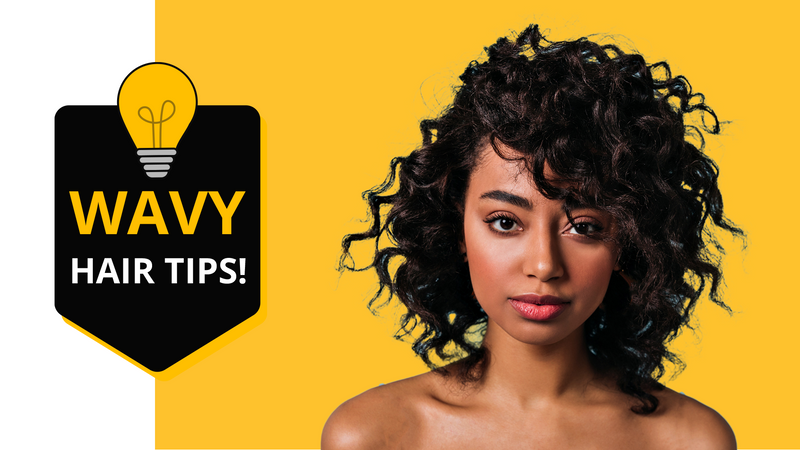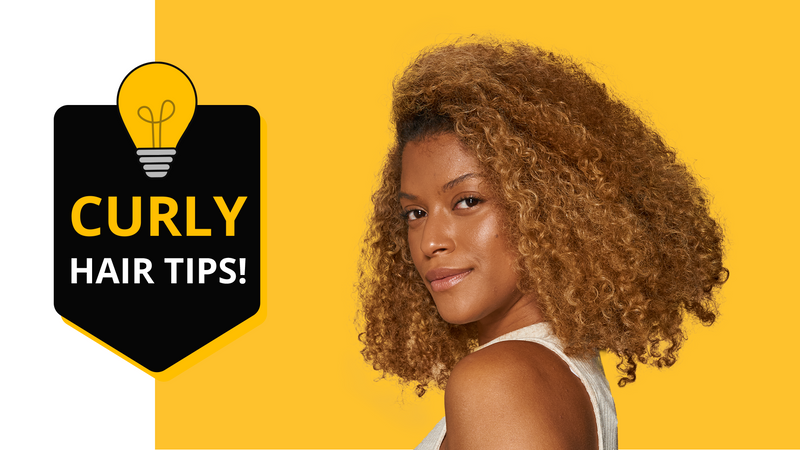We all know that as beautiful and unique as curly hair is, there is one issue that doesn’t let you rock it to the fullest - and that’s dryness. The twists and turns of curls make them more prone to dehydration, leading to frizz and breakage. In this guide, we'll explore the science behind curly hair dryness, uncover its common causes, and provide practical tips to restore moisture and vitality to your locks, including best moisturizer for curly dry hair. From choosing the right products to adjusting your routine, join us as we guide you through embracing your natural curls.
Understanding Curly Hair Dryness
The Science Behind Curly Hair Dryness
The science behind curly hair dryness is multifaceted, influenced by various factors ranging from genetics to environmental conditions. Curly hair tends to be drier than straight hair due to its unique structure, which makes it more prone to moisture loss. The natural oils produced by the scalp have a harder time traveling down the twists of curly strands, resulting in inadequate hydration and increased susceptibility to dryness.
Additionally, the cuticle layers of curly hair are often more raised compared to straight hair, making it easier for moisture to escape. Chemical treatments, excessive heat styling, and harsh hair products can further worsen dryness by stripping the hair of its natural oils and disrupting its moisture balance.
Find out in detail, how exactly to identify and treat dryness in curly hair in this blog.
Common Causes of Dryness in Curly Hair
Environmental Factors
Curly hair is especially susceptible to the effects of environmental factors due to its unique structure and texture. Harsh weather conditions such as extreme heat, cold, wind, and low humidity levels can wreak havoc on curly hair, stripping away moisture and leaving it dry and brittle. For example, exposure to UV rays from the sun can damage the hair cuticle, leading to moisture loss and increased porosity. Likewise, strong winds can cause tangles and knots, further contributing to dryness and breakage. Additionally, indoor environments with artificial heating or air conditioning can also dehydrate curly hair, exacerbating dryness and frizz.
While we understand that weather conditions are - well - clearly outside of our control, we can still take care of curly hair in a way that balances out the damage environment causes our curls.
Dry Scalp
While this may seem like a logical connection, many don’t know that when treating dry curly hair, it is best to start with dry scalp. Dry scalp is a common concern among individuals with curly hair, often manifesting as flakiness, itching, and tightness of the scalp due to insufficient moisture. Unlike dandruff, which stems from an overgrowth of yeast-like fungus, dry scalp in curly hair occurs when the scalp lacks adequate hydration, leading to discomfort and visible irritation. Factors such as cold weather, low humidity, harsh hair products, and frequent washing with hot water can exacerbate dry scalp symptoms, posing particular challenges for curly hair textures that are already prone to dryness.
Signs and Symptoms of Dry Curly Hair
Recognizing the signs and symptoms of dry curly hair is essential for knowing how to restore moisture and vitality. Dry curly hair often appears dull, lackluster, and rough to the touch. It may feel brittle and straw-like, with a tendency to tangle and form knots easily. Frizz is another common indicator of dryness in curly hair, as the cuticle becomes raised and uneven, allowing moisture to escape and causing the hair to become unruly and frizzy. Split ends are also prevalent in dry curly hair, as the hair shaft becomes weakened and prone to breakage.
So now that you’ve recognized all of the symptoms, it’s time to learn what can really be done about it!
Best Practices for Curly Hair Moisturization
Importance of Moisture in Curly Hair Care
Moisture is the basis of any healthy hair routine - but it is especially important for curly hair care, playing a crucial role in maintaining its health, elasticity, and vibrancy. Unlike straight hair, which benefits from the natural oils produced by the scalp easily traveling down the hair shaft, curly hair struggles to retain moisture due to its twists and turns. Without adequate hydration, curly hair can become dry, brittle, and prone to breakage. Therefore, prioritizing moisture in your hair care routine is essential for keeping your curls soft, defined, and manageable.
Let’s find out which ingredients to look out for when looking into most effective hydration.
Hydrating Ingredients to Look for in Hair Products
When choosing hair products for curly hair, it's essential to look for ingredients that provide deep hydration and nourishment. However, it’s also important to prioritize natural ingredients that not only replenish your hair but don’t harm it in the long run.
Chebe Powder
One such natural ingredient that has been taking the haircare market by storm is Chebe Powder, known for its traditional use in African hair care. Rich in natural oils and herbs, Chebe Powder helps to moisturize and strengthen curly hair, promoting growth and vitality. Plus, there is a range of products that contain Chebe, meaning you can choose whichever texture or product type you prefer to go for!
Shea Butter
Shea butter is another powerhouse natural ingredient for curly hair. Extracted from the nuts of the African shea tree, shea butter is a rich emollient that deeply moisturizes and nourishes curls. Its high concentration of fatty acids and vitamins helps to seal in moisture, leaving curls soft, smooth, and manageable, which is why it’s likely one of the most popular ingredients to include.
Rosemary Oil
Rosemary oil is prized for its stimulating and moisturizing properties, making it an excellent addition to curly hair care routines. This essential oil helps to improve circulation to the scalp, promoting hair growth and strengthening the hair follicles. Additionally, rosemary oil can help to balance the scalp's natural oils, preventing dryness and flakiness.
Incorporating these natural ingredients into your hair care routine can help replenish moisture and revitalize your curls without the use of harsh chemicals. Whether in the form of Chebe Powder, shea butter, or rosemary oil, these natural moisturizers can work wonders for maintaining the health and beauty of your curly hair.
Choosing the Right Shampoo and Conditioner
While a lot of women focus on how to enhance their haircare routine with additional products, many understate the importance of core routine, such as shampoo and conditioners, on long-term hair health. Let’s look into which shampoos and conditioners are best for curly hair with dryness.
Gentle Shampoos for Curly Hair
Curly hair requires a gentle touch when it comes to cleansing to avoid stripping away natural oils and causing dryness. Look for sulfate-free shampoos that are specifically formulated for curly or dry hair. These shampoos cleanse the scalp and hair without harsh detergents, helping to maintain moisture balance and preserve the integrity of your curls. Additionally, consider options like Chebe shampoo, which harnesses the moisturizing and strengthening properties of Chebe powder to nourish and protect curly hair while gently cleansing away impurities.
Deep Conditioning Treatments for Dry Curls
Deep conditioning is a crucial step in any curly hair care routine, as it helps to replenish moisture, repair damage, and enhance curl definition. Look for deep conditioning treatments that are rich in hydrating ingredients such as shea butter, coconut oil, and argan oil. These ingredients penetrate the hair shaft to provide intense hydration and nourishment, leaving curls soft, smooth, and manageable.
By choosing the right shampoo and conditioner for your curly hair type and incorporating deep conditioning treatments into your routine, you can effectively cleanse, hydrate, and nourish your curls, promoting health, shine, and manageability. Whether opting for gentle sulfate-free shampoos or moisturizing deep conditioners prioritize products that support the unique needs of your curls, leaving them looking and feeling their best.
Incorporating Leave-In Conditioners and Butters
Benefits of Leave-In Conditioners for Curly Hair
Leave-in conditioners and hair butters are essential for providing long-lasting moisture and nourishment to curly hair. Unlike rinse-out conditioners, leave-in conditioners are designed to be applied to damp hair and left in without rinsing, providing continuous hydration and protection throughout the day. They help to detangle knots, smooth the hair cuticle, and enhance curl definition, leaving curls soft, shiny, and manageable. Similarly, hair butters are rich, emollient formulas that provide intense moisture and seal in hydration, making them particularly beneficial for dry, coarse, or damaged curls. When incorporating leave-in conditioners and hair butters into your curly hair care routine, consider an option like Chebe leave-in conditioner, which contains nourishing ingredients like Chebe powder to strengthen and moisturize curls from root to tip.
Benefits of Hair Butters for Curly Hair
Hair butters offer a multitude of benefits for curly hair, making them a staple in many curly hair care routines. These rich formulas are deeply moisturizing and help to seal in hydration, making them particularly effective for combating dryness, frizz, and breakage. Hair butters such as Chebe Hair Butter also provide a protective barrier against environmental stressors and heat styling, helping to shield curls from damage and maintain their health and vitality. Additionally, the nourishing ingredients found in hair butters, such as shea butter, coconut oil, and argan oil, help to strengthen the hair shaft, improve elasticity, and promote overall hair health. Incorporating a hair butter into your curly hair care routine can help to keep your curls soft, smooth, and resilient, enhancing their natural beauty and vibrancy.
The Role of Washing
Impact of Water Temperature on Curly Hair Health
The temperature of the water used during washing plays a significant role in the health of curly hair. Hot water can strip away natural oils from the scalp and hair, leading to dryness and frizz. On the other hand, cold water can help seal the hair cuticle, locking in moisture and enhancing shine. Therefore, it's best to wash curly hair with lukewarm or cool water to maintain moisture balance and promote overall hair health.
Finding the Optimal Washing Frequency for Curly Hair
Curly hair often benefits from less frequent washing compared to straight hair types. Washing too frequently can strip away natural oils, leading to dryness and frizz. However, the optimal washing frequency for curly hair may vary depending on factors such as hair texture, activity level, and environmental conditions. Generally, washing curly hair once or twice a week is sufficient to cleanse the scalp and remove buildup without causing excessive dryness.
Overwashing vs. Underwashing
Both overwashing and underwashing can have negative effects on curly hair health. Overwashing can strip away natural oils, leaving the hair dry, brittle, and prone to breakage. It can also disrupt the scalp's natural pH balance, leading to irritation and inflammation. On the other hand, underwashing can result in product buildup, scalp issues, and a lack of hydration. Finding the right balance is key to maintaining healthy, vibrant curls.
By understanding the impact of water temperature, finding the optimal washing frequency, and striking the right balance between overwashing and underwashing, you can effectively care for your curly hair and promote its health and vitality. Adjusting your washing routine to meet the specific needs of your curls can help maintain moisture balance, reduce frizz, and enhance curl definition, leaving your hair looking and feeling its best.
Protective Styling and Nighttime Care
Importance of Protective Styling for Curly Hair
Protective styling is not just a trendy option; it's a crucial practice for maintaining the health and vitality of curly hair. Curly hair tends to be more fragile and prone to breakage due to its unique structure, which makes it susceptible to damage from environmental factors and manipulation. Protective styles such as braids, twists, buns, and updos help minimize this damage by reducing exposure to external stressors like friction, weather elements, and styling tools. Additionally, protective styles can help retain moisture within the hair shaft, preventing dryness and promoting overall hair health.
Satin Pillowcases and Head Wraps for Nighttime Care
Nighttime care is as important as daytime care when it comes to maintaining healthy curls. While all of the things below can seem like a little too fancy, nothing should feel too fancy when you are prioritizing yourself.
Traditional cotton pillowcases can cause friction and lead to breakage, frizz, and moisture loss in curly hair. To combat this, consider switching to satin or silk pillowcases, which offer a smoother surface that reduces friction and helps preserve your curls while you sleep. Satin head wraps or bonnets are also excellent options for protecting curls overnight, as they provide a barrier against friction and help retain moisture and style. By incorporating satin pillowcases or head wraps into your nighttime routine, you can wake up to smoother, more manageable curls with reduced frizz and breakage.
Styling Techniques for Overnight Protection
When styling your hair for nighttime protection, opt for loose braids, twists, or buns to prevent tension on the scalp and minimize stress on the hair shaft. Avoid tight hairstyles that can cause pulling and breakage, and consider using satin scrunchies or hair ties to secure your style gently. Applying a small amount of leave-in conditioner or oil to the ends of your hair before styling can also help seal in moisture and protect against dryness overnight. Experiment with different nighttime styling techniques to find what works best for your hair type and preferences, ensuring that your curls stay healthy and hydrated while you sleep.
Avoiding Heat Damage and Over-Manipulation
Impact of Heat Styling Tools on Curly Hair
As tempting as it is to experiment, ladies, heat styling tools like flat irons, curling wands, and blow dryers can unfortunately be detrimental to the health of curly hair if used excessively or at high temperatures. The high heat from these tools can strip moisture from the hair shaft, leaving curls dry, brittle, and more prone to breakage.
Additionally, frequent use of heat styling can weaken the protein bonds in the hair, leading to long-term damage and loss of curl pattern. It's essential to minimize the use of heat styling tools and opt for heat protectant products when heat styling is unavoidable to shield the hair from damage and preserve its natural moisture balance.
Minimizing Over-Manipulation and Excessive Styling
Over-manipulation and excessive styling can also contribute to dryness and damage in curly hair. Constant brushing, combing, pulling, and styling can lead to increased friction and breakage, particularly in fragile curly strands. To minimize over-manipulation, adopt a gentler approach to styling by using wide-tooth combs or your fingers for detangling instead of harsh brushes.
Embrace low-manipulation or protective styles that require minimal daily styling to give your curls a break and allow them to thrive naturally. By reducing over-manipulation and excessive styling, you can help maintain the integrity of your curls and prevent unnecessary damage and dryness.
Alternative Styling Methods for Heat-Free Curls
Instead of relying solely on heat styling tools to achieve a certain look, explore alternative styling methods that promote heat-free curls. Techniques like twist-outs, braid-outs, flexi rod sets, and roller sets can create beautiful curls and waves without the need for heat. These methods not only protect your hair from heat damage but also encourage curl definition and enhance the natural texture of your hair. Experiment with different styling techniques to discover which ones work best for your hair type and desired look, allowing you to achieve stunning curls without compromising their health and vitality.
Nutrition and Hydration for Healthy Curls
The Link Between Diet and Hair Health
The common phrase "you are what you eat" holds true when it comes to the health of your curls. As important as haircare products and a proper routine are to your hair’s appearance and health, your eating habits remain just an important a factor. Your diet plays a significant role in determining the strength, shine, and overall condition of your hair, including your curls.
Consuming a balanced diet rich in essential nutrients ensures that your body has the building blocks it needs to produce strong, resilient hair strands. Key nutrients for healthy hair include protein, vitamins (particularly A, C, D, and E), minerals (such as zinc, iron, and selenium), and omega-3 fatty acids. Incorporating a variety of nutrient-dense foods into your meals, including lean proteins, fruits, vegetables, whole grains, and healthy fats, can provide your curls with the essential nutrients they need to thrive.
Hydration Tips for Moisturized Curls
Just as hydration is essential for overall health, it is crucial for maintaining moisture balance in your curls. Dehydration can lead to dry, brittle hair that is more prone to breakage and frizz. To keep your curls hydrated from the inside out, make sure you're drinking an adequate amount of water throughout the day. Aim for at least eight glasses of water daily, or more if you're physically active or live in a hot climate. Additionally, incorporating hydrating foods into your diet, such as water-rich fruits and vegetables (like cucumbers, watermelon, and oranges), can help boost your hydration levels and support healthy, moisturized curls.
Foods Rich in Essential Nutrients for Hair Health
Certain foods are particularly beneficial for promoting healthy hair growth and moisture retention in curls. Including these nutrient-rich foods in your diet can help nourish your curls from the inside out and enhance their overall health and appearance. Foods high in protein, such as lean meats, fish, eggs, and legumes, provide the amino acids necessary for building strong, resilient hair strands.
Incorporating foods rich in vitamins and minerals, such as leafy greens, bell peppers, sweet potatoes, nuts, and seeds, can help support optimal hair health and combat dryness. Additionally, omega-3 fatty acids found in fatty fish like salmon, flaxseeds, and walnuts can help strengthen hair follicles and improve moisture retention in curls. By prioritizing a nutrient-rich diet, you can provide your curls with the essential building blocks they need to thrive and maintain their natural beauty.
Supplements for Hair Health
In addition to a healthy diet, supplements can also support optimal hair health and hydration, especially if you have specific nutrient deficiencies or struggle to meet your nutritional needs through food alone. Biotin, also known as vitamin B7, is a popular supplement that can help promote hair growth and strengthen hair strands. Other supplements like collagen, zinc, and vitamin D may also benefit hair health and moisture retention in curls. However, it's essential to consult with a healthcare professional before starting any new supplements to ensure they are safe and appropriate for your individual needs.
Recap of Key Strategies for Combatting Curly Hair Dryness
Encouragement for Embracing and Nourishing Natural Curls
Embracing and nourishing your natural curls is the foundation of effective curly hair care. Rather than striving for a sleek, straight look, celebrate the unique texture and beauty of your curls. Embracing your natural hair not only promotes self-acceptance and confidence but also allows you to tailor your hair care routine to meet the specific needs of your curls. By embracing your natural curls, you empower yourself to prioritize moisture, hydration, and overall hair health, resulting in vibrant, healthy curls that radiate beauty and authenticity.
Empowering Curly Hair Care Practices
Empowering curly hair care practices involve adopting a proactive and informed approach to hair care that prioritizes moisture, hydration, and protection. By educating yourself about the unique characteristics and needs of curly hair, you can make informed decisions about the products, techniques, and treatments that will best support your curls. Experiment with different hair care products and routines to find what works best for your hair type, texture, and lifestyle.
Remember that there is no one-size-fits-all approach to curly hair care, so don't be afraid to customize your routine based on your individual needs and preferences. By empowering yourself with knowledge and experimentation, you can develop a curly hair care routine that nourishes and enhances your natural curls, promoting optimal health, vitality, and beauty.
Conclusion: Embracing Moisture for Vibrant, Healthy Curls
In conclusion, combatting curly hair dryness requires a multifaceted approach that prioritizes moisture, hydration, and protection. By understanding the science behind curly hair dryness and implementing key strategies such as proper moisturization, gentle cleansing, protective styling, and nutritional support, you can keep your curls healthy, vibrant, and resilient. Embrace your natural curls, empower yourself with knowledge and experimentation, and prioritize moisture to unlock the full potential of your hair. With dedication and care, you can achieve vibrant, healthy curls that radiate beauty and vitality, empowering you to embrace and celebrate your natural hair with confidence and pride.















